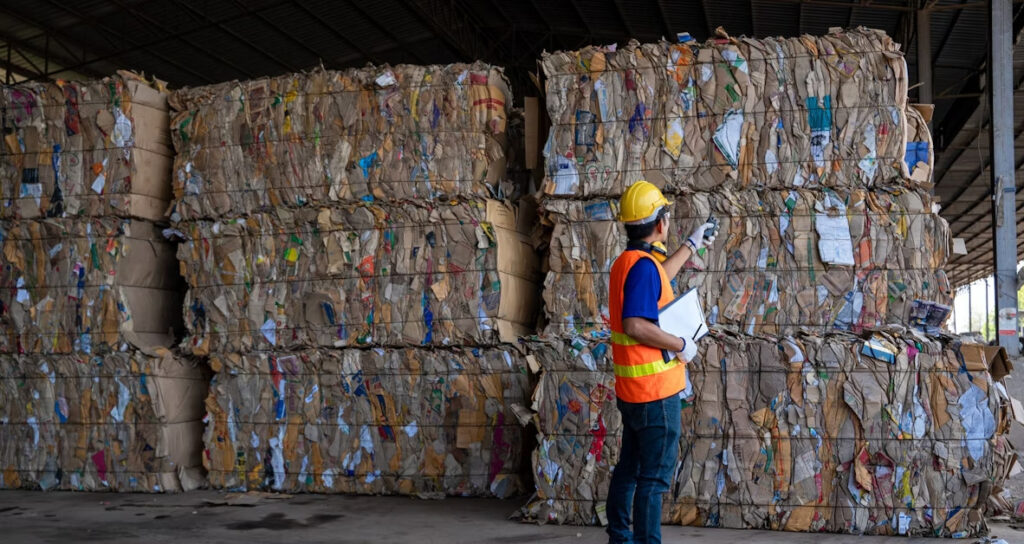6 Strategies for Cutting and Monetizing Waste in Your Business

Cut costs and generate new revenue streams by turning business waste into valuable resources.
Many businesses see waste as a sunk cost, but it doesn’t have to be. With a few minor changes, you can reduce what you’re throwing away and even create new sources of income in the process. Here are six steps to get you started.
Start with a waste audit
Before you can make any improvements, you need to know what’s going to waste. A waste assessment helps you get a clear picture of what your business is discarding — and what it’s costing you.
It could include obvious items like packaging scraps or unsold inventory, but it also covers things like energy waste, excess water usage, or time lost due to inefficient systems. You can do a basic audit in-house by tracking what’s being tossed and why.
If you want a more thorough analysis, consider working with your local recycling provider or even city sustainability programs that offer free audits for small businesses. The goal is to uncover where you’re losing money and where there’s potential to get some of it back.
Streamline your operations
Once you understand what’s going to waste, look for ways to cut back. You may be surprised that small adjustments can significantly reduce the amount of materials you use and throw away.
Start by tightening up your inventory practices, since ordering more than you need can lead to spoilage or outdated products that are never used. Packaging is another area worth reviewing — swapping out single-use materials for reusable or recyclable options can lower long-term costs and reduce your environmental footprint.
Find ways to reuse byproducts
Not all waste needs to be thrown away. Sometimes, leftover materials can be reused in your own business or repurposed for entirely different uses. For example, coffee shops often donate used grounds to local gardens for composting. Manufacturers might sell leftover metal or plastic scraps to businesses that can use them in their production processes.
If you can’t find a way to use the items yourself, see if another business in your area can. Local schools and nonprofits are often open to partnerships, and what you consider waste may be useful to them. These relationships can also help strengthen your ties to the local community.
Sell unused inventory
If you’ve got extra materials lying around, you may be able to sell them through online platforms or local business networks. Scrap metal, electronics, paper, and certain plastics can often be sold to recyclers or resellers. For inventory, try sites like Liquidation.com, where other businesses are looking for discounted items.
Donating goods to charity is another option, and it comes with potential tax benefits. If you go this route, make sure to keep careful records and talk to your accountant about how to claim the deduction.
Cut back on energy waste
Energy waste is easy to overlook, but it adds up quickly — and it’s often one of the easiest places to find savings. Many utility companies offer energy audits for free or at a low cost, and they can point out where you’re losing money on heating, lighting, or equipment.
Small upgrades, like LED lights and programmable thermostats, are relatively easy to install and can significantly lower your utility bills. And if your business uses solar panels, check if your state allows you to sell unused energy back to the grid.
Use your sustainability wins in your marketing
Reducing waste isn’t just good for your bottom line — it can also help your business stand out. More customers and business partners are looking to support companies that operate responsibly and share how they’re taking steps to minimize their environmental impact.
Highlight things like how much waste you’ve diverted from landfills, the volume of materials you’ve recycled, or partnerships you’ve built to reuse byproducts. Keeping it specific — “We reduced packaging waste by 40% this year.” — carries more weight than vague claims about being eco-friendly.
CO— aims to bring you inspiration from leading respected experts. However, before making any business decision, you should consult a professional who can advise you based on your individual situation.
The Caldwell Chamber of Commerce is a private non-profit organization that aims to support the growth and development of local businesses and our regional economy. We strive to create content that not only educates but also fosters a sense of connection and collaboration among our readers. Join us as we explore topics such as economic development, networking opportunities, upcoming events, and success stories from our vibrant community. Our resources provide insights, advice, and news that are relevant to business owners, entrepreneurs, and community members alike. The Chamber has been granted license to publish this content provided by U.S. Chamber of Commerce.
